In a relatively new spin-off from our deliriously popular Young Blood Sommeliers series, we are proud to present The Old Bastard Sommeliers, who will be running in alternating months to our ongoing YBS interviews, well, that is if these Young Bloods can get off their arses to get their interviews back to me on time…
This sure-to-be-entertaining series will focus upon in-depth extended interviews (6,000+ words!) with some of the more infamous veteran characters in the scene, examining where they got their first start, who inspired them, how (through their skills, eccentricities, and perversions) they developed into the legendary figures they are today, and what tips and tricks they would pass on to the young bucks who are occasionally making them feel like relics of a bygone age.
tThis month sees the appearance of someone I never see often enough, the simply wonderful Véronique Rivest.
And the award for most prolific use of emoticons in an interview goes to…
Good Food Revolution: So Veronique, what is it that you are doing these days?
Véronique Rivest: Ha! Love that question since each time it makes me realize how I never have two days that are the same. I would be bored to death always doing the same thing. The huge variety of what I do is a big part of why I love my job. It’s a bit overwhelming sometimes, because it involves so many different things, but definitely prefer that to a daily routine.
So, right now : working at SOIF, my wine bar in Gatineau (summer is typically when I’m around the most). Still writing weekly for La Presse online newspaper, and a few other magazines. Still doing a lot of educational work – need to start working on masterclasses I’ll be giving this fall on Medoc and Ribera del Duero, as well as a wine & food matching webinar for Loire wines. Preparing tasting training sessions for a Chilean sommelier who will be training with me during the whole month of August. I also do quite a lot of corporate events, but those slow down during summer. Just as traveling to wine regions. I always try to slow down during summer, to spend more time at Soif and at home. Something to be said for sleeping in your own bed every night for a few months 🙂
Other than that, working on opening another wine bar/resto in Gatineau (for now, opening slated for fall 2020). Also working on financing the purchase of the building SOIF is in.
More daily, right after working on answering these questions, I have about 30 wines samples to taste (do that once a week at home – on top of tastings I do with reps at SOIF – and tastings I attend when winemakers are around – you know how it goes 🙂 )
GFR: When did you first decide that you would like a career in wine?… and was it with a view to becoming a Sommelier?
VR: I never knew. I’ve said this a million times : I never woke up one day saying I wanted to have a career in the hospitality industry or become a sommelier. I’m one of those people who never knew what I wanted to do in life (my husband would probably tell you I still don’t). Probably because I found way too many things interesting, and never fell hard for anything in particular. I was always afraid of specializing in school, afraid I would miss out on too many other things. So my studies always stayed very general, things that could be useful whichever path I chose. I did a BA in Modern Languages and Literature (German and Spanish) at Ottawa U, and then an MBA in International Trade at Schiller University in Strasbourg. But I got my first job in the industry at 16 and fell in love with hospitality and service. So I kept working in the restaurant trade during my studies and fell in love with food and wine. But who wouldn’t? I didn’t think it was a career option, I was just gourmande. Always have been. And extremely curious.
So I guess it’s a combination of jobs, experiences, and people I met that slowly took me down this road.
GFR: Tell us about your history in the industry? Where did you get your first start?
VR: Mentioned above. Working in a restaurant in the Byward market in Ottawa (called Tramp’s!). I worked as a hostess as I was underage and couldn’t serve alcohol. But I loved it and seeked out work in restaurants from then on.
GFR: And from that formative experience where did you go from there?
VR: Every restaurant I could get into! Loved discovering new cuisines (again, gourmande and curious, and from a family of travellers). I worked in a Danish restaurant, then Afghan, Indian, and so on. Also did a few years in bars – on the main strip in Hull (anybody who was around here in the 80’s will remember that strip). Loved that too. The money was crazy and I learned all my bartending skills and classic cocktails back then. But all that time, still not a sommelier, nor thinking about it. I was still officially studying and looking for my calling 🙂 But great learning : hostess, busgirl, server, bartender, manager. Did it all.
Then I left for France for a year of study (still languages and literature) – which turned into mostly a year of partying. Long story short : met my future husband, had to come back to Canada after expiration of my student Visa, he came along, we worked in bars for a year, then went back to France to get married (easier than dealing with visas all the time), had planned to come back, but ended up staying another 6 or 7 years in France (Strasbourg), since my husband started a business.
So I looked for work and worked as manager in a hotel (with restaurant and wine bar) for a few years, for a winery for another few, and teaching about wine (at the same University where I did my MBA part time). The dean at the University was American and a great wine lover. I learned a lot with him and had amazing opportunities through his network (visited the Hospices de Strasbourg where I tasted the world’s oldest wine, from 1472!)
Also met Serge Dubs thanks to the Dean, and attended workshops he gave. Working at the winery is probably the first time I started thinking of this whole wine thing as a possible career. When we (my husband and I) returned to Canada in 1994 (after thinking I might become a buyer for the SAQ or LCBO – little did I know how that worked!), I went back to what was natural to me, the restaurant biz, and started working at Les Fougeres restaurant in Chelsea, where I ended up spending about 13 years.
That was my first, real, sommelier gig (although I did a lot of somm work at the winery). At the same time, I worked at the LCBO, and quickly became a product consultant (stayed 4 or 5 years, got fed up with the way public service worked and couldn’t resist a full time gig, as manager/sommelier Les Fougeres was offering me). At that time also, after taking the 3 classes that made up the Sommelier program at Algonquin back then, I started teaching the program and building it up (rewrote level 2 and wrote level 4).
GFR: And what were your most memorable gigs over all that time?
VR: All of them, really. Each one taught me something new. Otherwise I’d leave. I have super fond memories of my time at the winery in Alsace. Even if it was quite big, it was run by a family, and everything was super accessible. And when they realized how curious and interested I was, they really supported me in learning. Whenever I had time, I would be in the vineyards, in the cellar or the oenologist’s lab, asking questions.
They also paid for me to take classes and I took part in all the wine fairs they’d attend (did Vinexpo 1989 and 1991 with them). It was a real incursion into what wine is all about. Not just the beverage, but how rich it is in history, culture, traditions. Listening to the elder of the family tell stories about Alsace, the vineyard and its wine throughout history were some of my all time favorite moments.
And then Les Fougeres. The owners, Jennifer Warren-Part and Charles Part, are some of the most wonderful people I’ve ever come across in the trade. Passionate and hard working, they always encouraged whoever wanted to keep on learning. I started competing when working there, and they always gave me paid time off to study, allowed me to take time off to study more, travel and attend competitions. They instilled in me a lot of convictions I have today about food and hospitality. They created and nurtured a healthy and positive work environment.
GFR: How did the Air Canada gig come about? And how did that pan out? As that must be one hell of a challenge?
VR: To this day, everything I do (except starting a business – SOIF) are things that were offered to me. I have not seeked out work. I feel incredibly blessed for that. But it’s also the result of years of hard work. People often ask me what the competitions bring. I mostly do them for learning. And no there are no great money prizes (although that’s slowly getting better), but there is professional recognition and notoriety. And that has definitely helped me in getting all kinds of cool gigs.
So Air Canada approached me about three years ago – there were a few candidates, and we all had to do a pitch. I was thrilled to get the position. Choosing wines for an event or a venue is always fun. And each new place comes with its own challenges. But airplanes? Serving wine at 30 000 feet? That was a pretty cool challenge. As well as quantities required! And the fact that I can source wines from anywhere in the world without any provincial liquor board regulations. We get wines directly from the wineries. So that’s super cool. Yes, it presents quite a few challenges. But that’s what makes it fun, no?
GFR: What’s the story behind your formal wine education? And with considerable hindsight do you feel that this was the best route to where you are today?
VR: Well, I’m basically self-taught. As mentioned earlier, this all kind of happened organically, through various jobs and experiences. But as I am so curious and always yearning to learn, I also followed every single class I could attend, read all the books I could get my hands on. And I still do!!! I often say : the day I stop learning is the day I’ll die.
I don’t think there is a better way. We all learn differently, just as we all taste differently 🙂 And franky, in this business, nothing beats work experience. You can have all the wine knowledge in the world, if you can’t rock a full section on a busy night in a restaurant, juggle glasses, plates and cases of wine, and deal with difficult customers, you ain’t a good sommelier.
GFR: Have you ever been in a wine biz situation and begun to really feel your (relative) age? And if so, why?
VR: Hmmm. Not sure. Actually I’m never quite sure of my exact age (I remember my year of birth and have to count 🙂 ) I do feel the physicality of working the floor a bit more, get tired quicker. I’m less inclined to stay late, stay after work for drinks; I’d rather go home. Most of the time 🙂 But frankly, the only big difference, is dealing with very (very) late evenings (mornings) with lots of drinking, dealing with hangovers. It’s getting a bit more difficult.
GFR: Along the way, who inspired you the most? Did you have any mentors? And what did they do that set them apart from everyone else?
VR: That’s always a tough one. I think in every good job I had, there were people that inspired me. Again, otherwise I would have left. So, mentioned earlier were the family at the winery I worked at, and the owners of Les Fougeres. Gerard Basset is also someone that played a huge role in terms of inspiration. To this day, he remains one of the most wonderful, knowledgeable and generous people I’ve ever met in the business. But frankly, more than all, my parents certainly played the biggest role in shaping who I am. Their openness unto the world, their love of travel, their great humility and strong work ethics were a constant inspiration.
GFR: Can you remember your worst customer experience ever? I have a few doozies…
VR: You know what? That’s like when someone asks me about sexism in the industry. Of course there are some pretty bad moments out there, but I tend to forget about them. I think one of my greatest qualities is the ability to forget the bad stuff and concentrate on the good. I am a pretty positive and generally happy person. I find it just helps make everything better.
But AS a customer, oh boy, am I ever always complaining things aren’t perfect. To myself of course. Or the people I’m with. You know how we are, people in the industry, probably the last to complain. But I am constantly observing everyone working in customer service : from the grocery store to any retail, resto, or any other service industry. Because it’s my job and it helps me to learn. To see who is doing what and how. Ways to improve, to do things differently. Or simply to add to my list of « things not to do! » for service training 🙂
GFR: I know that you have done some time selling wine, how did that come about, and how do you find it compared to your time on the floor/in the trenches?
VR: I often say my job is to taste wine and talk about it. Or at least that’s what I like doing. Be it with customers in a restaurant setting, in retail, in articles I write, or through teaching. All fun.
I did find retail to be great for learning, because we get to see so many more wines, and much more varied, than on most restaurant wine lists. The turn-over is much greater too, so you just get exposed to soooo much! Wines, but also beers, spirits, liqueurs, etc. Mind you, I was also always reading labels. I would get mad at co-workers who would just put wines on a shelf without even reading the label. « You’re missing out on so much info! » I would tell them. But then again, not everyone was as curious or interested as I was 🙂 There have been many questions on exams or in competitions that I was able to answer just from a label I had looked at.
GFR: So what makes for a good agent/supplier/merchant in your mind?
VR: Someone who looks after us as well as we look after our customers!!! That’s it. Get to know me, my needs and likes, be pro-active, follow up. It’s not fuckin’ rocket science, it’s customer service. But sometimes I really wonder… Seems so simple, yet people manage to screw it up. Not talking specifically about agents here (lucky to be working with great ones here in Quebec), but everyone in customer service in general, and in the hospitality industry in particular. Maybe it’s because they don’t care.
GFR: How do you feel that the industry has changed since you first started all those years ago?
VR: So much! But then again, everything is always changing. The wine offer is constantly growing, we have more and more variety to choose from, and to learn about! Seriously, I think I’m hearing of/tasting a new grape I didn’t know every week! How cool is that?? Restaurant wine programs used to be all quite similar, built along the same format, same style of wines. Now the variety is huge! Anything goes. There is so much creativity out there, as much in viticulture and winemaking, as in restaurant wine programs. Obviously, there’s a lot of silliness too, nothing is ever all good, there’s good and bad in everything, but it’s not boring! And the overall increased wine knowledge of consumers is really pushing everyone to keep improving, learning, keeping up with all the changes happening, the new wines, and the increased knowledge from our guests.
Another great change is the much greater collaboration between boh and foh. Food and wine are inextricably linked together, and chefs and somms working together, actually chefs paying attention to (and liking!) wine makes such a big difference.
GFR: And how has Canada changed as a wine-appreciating country? Maybe looking at say Montreal and Toronto? Or the differences in palates betwixt Quebec and Ontario?
VR: We’re lucky to be in a country where interest for wine has been growing for the last 50 years and still is. As mentioned above, consumers are much more knowledgeable today, and very curious, eager to learn, to hear the stories behind the wines. That all makes our job even more interesting, and motivating.
Everybody tastes differently, and of course our cultural background plays a role in that. It’s always interesting to hear how people perceive themselves as tasters. You ask about the palate difference between ON and QC. I could tell you it’s the same as the difference often mentioned between east coast and west coast. In Canada and the USA. But all those generalizations are just that : generalizations. And not really relevant today when our world is so diverse and we all have such different backgrounds. It’s the same as saying women’s palates are like this and men’s, like that. I just don’t believe that.
GFR: What were the top spots for wine back in the day?
VR: Always has been, and always will be, anywhere in the world with good food and great company 🙂
GFR: How do you feel about Canadian wines? And how have you viewed their evolution since your early days in the industry?
VR: I’m super proud of our Canadian wines!! And not just only Ontario and BC anymore, but also Quebec and Nova-Scotia!! How exciting is that?! We make rock solid, world quality wines in all four provinces. And the move to more natural, terroir driven, idiosyncratic wines everywhere is a joy to see. And taste! The change has been drastic in the last 40 years, and even more so in the last 20. No one would have ever thought to be able to drink a good pinot noir from Quebec twenty years ago!
GFR: What do you think that we do well here in Canada today?
VR: Sparkling – actually that’s one thing all four provinces have in common : they all make some amazing, super delicious sparkling wines. I really think it should become a flag bearer for the Canadian wine industry. And every kind of bubble from pet nat to traditional method, in white, rosé and red. Love it!!
Then for Ontario, riesling of course, a particular favorite (my Mom was German – I was raised on German riesling), chardonnay, pinot noir, cabernet franc. Still rooting for gamay, but not super impressed yet.
GFR: And what do you feel we should really give up on?
VR: I’ve always said pull out the cabernet sauvignon (at least for eastern Canada). Even if there have been some good examples, and climate warming might be helping a little. I really don’t think it belongs here.
GFR: Just as there is from everywhere in the world, there is quite a lot of dreadful wine coming from Canada (BC, Ontario et al.) also. How do you feel about the issue of people simply promoting something because of it being local, and not because of its quality?
VR: I think local movements are always positive. It doesn’t make sense to tell someone who’s purchasing a bad Canadian wine, to buy a better made foreign wine instead. It’s a place to start. Then it’s up to us, every person in the wine industry, from winemakers to somms, to talk to consumers and raise awareness about how wines are made (viticulture and winemaking). So many people don’t realize that wines can be as highly processed as Kraft single slices. And most people are super open and more than willing to listen. That’s a huge part of our job after all. And by looking at which wines sell the most, the world over, we still have lots of work ahead!!!
GFR: And what’s your take on this natural wine thing? And why do you feel it is even a “thing”?
VR: Pffffffff. Huge sigh. Well, at Soif, we have a list of, I guess, mostly natural wines. I just don’t like the word. Is organic viticulture better than conventional viticulture? Yes (ok, debatable, but let’s stay general here). But are all organic wines necessarily better than conventional wines? No! Again, there is great and crap everywhere. So yes, I favour organically grown vines, cared for by vignerons, and made into wine without anything added, if possible. But I also much prefer a wine with a little SO2 added than a faulty one. And I very strongly feel that the teaching of faults in winemaking and wines should be an essential part of any sommelier’s training.
GFR: How aware of wine were you whilst growing up? Were you around wine from an early age?
VR: Yes, lucky that alcohol was never taboo in our house. My mom was German, my father French Canadian. We grew up with wine at the table most evenings. We could always try if we wanted a sip. Not great wines – just inexpensive, every day wines. But I’ll always remember boating on the Mosel – we were water skiing! – with my uncle and his family when I was eleven, and everyday we’d try wines from different estates along the river. I loved it!!!
GFR: Can you remember your first taste of wine?
VR: Nope.
GFR: When do you feel children should be introduced to the wonderful world of wine?
VR: I think it’s the most stupidest thing to prohibit it until adult age. I truly believe prohibition just leads to terrible excesses. My husband is French. From the age of 9 or 10, he was given a glass of wine at the table. At first, it barely had any wine and lots of water, and then the proportions changed as he grew up. I’ve given my wine glasses to my kids to smell, and taste if they want, as soon as they could hold themselves at the table. I do the same with food! I never forced them to eat anything, but they had to try everything. And we tried to expose them to as much as possible : different smells, tastes, produce, etc. Wine is part of that. And it also helps develop your sense of smell and taste. Which just makes life better 🙂
GFR: The Sommelier world is notoriously full of pretentious arseholes, and after seeing that film Somm a few years back I still worry about the emergence of a new Wine Bro culture… also, I recently picked up on a LOT of that from the mixology crowd, full-on Jordan Peterson fans and all that stuff. I’d love to hear your thoughts? There have always been pretentious arseholes, right?
VR: Just like there has always been bad wine. And there will always be. We just have to be stronger 🙂 What angers me the most is those who say that we got rid of the old, arrogant sommelier (you know, the one with the tastevin), but have just replaced that with another form of arrogance. A customer recently told me he said he didn’t like the wine a somm served him, and the somm told him : « it’s because you don’t understand it » OMG!!!!!!!!!!! Damn hipsters and their unicorn wines.
GFR: Speaking of which, we are having some really important conversations right now about the prevalence of sexual harassment in the workplace, and what can be done to eradicate it from the culture. Things are changing and certainly for the better.
I’d be interested to hear your take on the topic, and perhaps what you witnessed during your years in the restaurant world… big question I know, but I feel it’s a topic that deserves discussion.
VR: It is a big question, and would merit a very long answer. And yes, everything going on to help create safe and respectful work environments is great, and needed. But I wish we would also showcase all the fabulous places in the industry that are already safe and respectful. And that have always been. We’re giving this image that the entire restaurant industry is just one big wild party place, overrun with booze, dope and abuse. There are so many restaurants run by kind, generous, hard working individuals that truly care about their employees. Where the word family has a real meaning and is not just thrown around. I used to say that my job was about making customers happy. Now that I own my restaurant, I say my job is all about making my staff happy. I want happy customers? I need happy staff. And a safe and respectful workplace, where employees can learn and grow, is just plain human decency.
GFR: One of the greatest perks of our industry is the opportunity to travel. Which wine regions have you had the opportunity to visit? I know this is going to be a hell of a long list…
VR: Never made a list 🙂 Maybe quicker to say where I havent been? Na, impossible, with the explosion of the wine world! Haven’t been to Tibet yet. They do make wine there 🙂
Ok for fun, here’s a list
- Canada, all four provinces
- South Africa
- USA : California, Oregon
- Mexico, Chile, Argentina, Brazil
- France : all but Loire (!!!), Jura and Savoie (!!!!) Exclamation marks because they are some of my favorite wines
- Germany : all but two old eastern regions
- Spain : Catalunya, Rioja, Rias Baixas, Andalucia (really want to go to Bierzo, Ribeira Sacra and Canary Islands)
- Italy : Piemonte, Veneto, Tuscany (still so much to see!)
- Portugal (but not the Douro yet!)
- Greece : all of it!
- Austria : all but Styria (also really want to go)
- Australia (but never out west)
- New-Zealand
- I think that’s it…
GFR: What have been the most memorable wine trips that you have been on over the decades?
And why? What made them so special?
VR: Remember Germany?? That was fun! But so many. Again, very dependent on who you’re traveling with. The advantage of getting old : you mostly get to choose who you travel with 🙂 Sriously, I love everywhere I go. Because we get to meet wonderful, passionate people in the trade, and to discover cultures through wine and food. And nothing like walking the ground, and smelling the air, where wines are made to try to understand them better
GFR: That German trip was when we first met, right? I think I may have a pic… hold on…
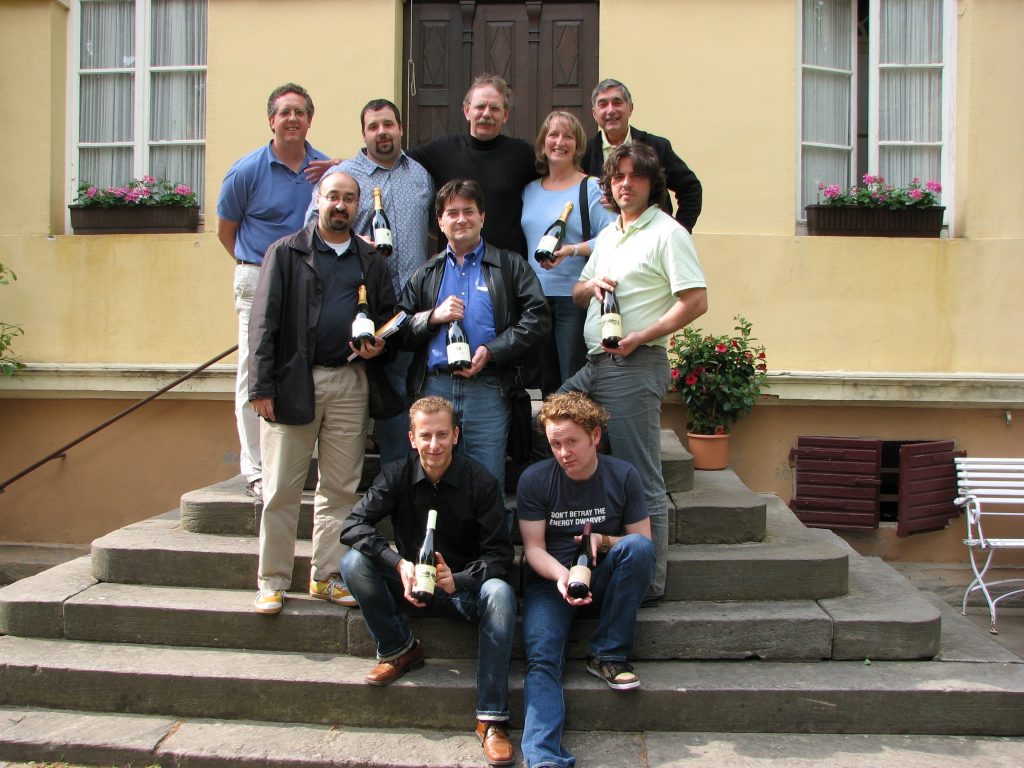
GFR’s Jamie Drummond meets Véronique Rivest for the first time, way back in April 2006. Pictured here on the steps at Lingenfelder.
Have you ever made your own wine?
VR: Nope. And no intention to. But never say never, right? 🙂
GFR: And where would you like to make wine (in a pipe dream)?
VR: Somewhere cool – for the wine. Somewhere warm – for the weather.
GFR: So do you prefer to manage people or bottles and why?
VR: Depends on my mood 🙂 I mostly like not doing the same thing every day. But obviously managing people is much harder and more demanding. But also so much more gratifying.
GFR: What have been your career highs and lows?
VR: No lows. Just like no failures. All experiences from which I learned and grew better. Highs : as simple as every guest we serve who spends a lovely evening. And as exhilarating as every competition I did. I said did, not won, because each was always an accomplishment for me, no matter my ranking.
And of course, 2nd place at the World’s Best Sommelier competition in 2013 was just fuckin’ awesome. Will stay with me my entire life. It couldn’t have happened in a better place. Most world finals have had 400 to 600 spectators. In Tokyo in 2013, there were 5000!! It was unreal. I had a rock star moment there. I stayed for a week in Tokyo after and every wine store or wine bar I’d walk into, they would recognize me, ask for autographs (!!). It’s a city of 38 million people!!! Unreal. And Tokyo is such a cool city. Can’t wait to go back!
GFR: Who is, in your mind, a real role model for Old Bastard Sommeliers?
VR: Gerard Basset. Even though he has now left us. His influence will linger for a very long time.
GFR: Do you have any nightmares about working with wines? I do… regularly… and it usually involves being unable to find bottles in a cellar… and the clock is ticking away… I have them all the time, and I haven’t been in the role for almost ten years!!!
VR: Not really. But as I mentioned earlier, I have a tendency to forget bad stuff. I usually don’t remember my nightmares.
GFR: Wine folks famously have their Sundays off… What’s your idea of a perfect Sunday? And how does that day off differ from one that you would have had, say, 30 years ago?
VR: Well, the only problem with having as varied a job as I do, is that I’m basically working all the time. But you know what they say right? When you love what you do, it isn’t really work… But I wouldn’t change a thing. Yes I work a lot, but I decide when, and how much. That’s extremely precious. And I do love everything I do.
Oh, the question! Well, sincerely, doing nothing is a real day off. I say that, but then I have a hard time staying put for 10 minutes! But being at home, not looking at my phone all day, gardening, cooking, cleaning. Just hanging out at home. That’s a perfect day off.
GFR: Do you cook yourself? What’s your favourite dish to cook these days?
VR: I used to cook much more! Although I’ve never considered myself a great cook. I’m very good at surrounding myself with people who cook well 🙂 With my crazy schedules over the years, my husband has pretty much taken over cooking, and does a great job at it!
GFR: Do you feel that there is a good Sommelier community in Canada? And how was it when you started in the business?
VR: it is definitely better now. There were very few sommeliers in Canada when I started. And I have always worked to bring people together. The wine community in Quebec was completely cut off from that in other provinces when I started. We,re still a huge country soi t isn’t alwasy simple, but at least we’re all aware of each other and get chances more often to interact. But I hope it will keep on developing. I feel very strongly that we all become stronger and better together.
GFR: How often do you hang about with other Sommeliers?
VR: Well considering that most of my FOH staff at Soif are sommeliers, most of the time 🙂 Same when on trips, or attending tastings, or doing training. So yes, lots. That’s why just hanging at home is so attractive 🙂
GFR: I’ve heard so many of my peers say that they don’t do the big trade shows anymore, the big wine tastings. What are your thoughts on that?
VR: They are a fabulous opportunity to taste, learn and make contacts when you start. But today, I also attend lees and less. They are just not productive enough for me (too many hours spent to taste not enough wines). You end up spending way more time chatting than tasting. And elbowing your way through a crowd to reach a taste spit bucket? Pu capable.
But they can be very useful. I just need to make a plan and a schedule if I go, and stick to it. Easier said than done.
GFR: What would you be doing if you were not doing what you are doing today?
VR: Drinking? Seriously, no clue.
GFR: What are your thoughts on music in restaurants? And who does it well?
VR: Tough one. I’m constantly fighting with it. Soif is a wine bar, so we do have music. I don’t want people walking into a quiet place, I want it to be lively. But it’s also important that people are able to have conversations without yelling. Achieving that is really tricky. And definitely something restaurant people need ot think more about. If I have to yell, I’m out. And only the noise of people chatting I think is a great ambiance. But even that can be difficult, depending of how sound travels in your space. In an ideal world, we’d all have sound engineers design ours restaurants.
GFR: Do you have many non-industry friends… how do they feel about what you do for a living?
VR: Yes I do. And they all think it’s pretty cool. Especially when they get all my leftover samples.
GFR: What are your thoughts on blind tasting wine?
VR: Pfffff. Another big sigh. Love it as a game amongst ourselves. Just so much fun to geek out. But not for evaluating wines. Wine is a product of place, time and people (isn’t that Trialto’s slogan?), and it therefore requires context. My ideal way of evaluating wines would be to taste them once, as we normally do. Taste them again a little later, with food, at the table, with other people. And then once again the next day. Ideally. But of course, completely impossible.
GFR: Are you a better blind taster with or without a bad hangover? I’m definitely the former…
VR: OMG without!!!
GFR: Some of the best tasters I know are heavy smokers… What are your thoughts there?
VR: I’ve always said (saying that a lot, eh? That’s age talking right there 🙂 ) it’s when you change something that you’ll be tasting differently. If you always smoked, and suddenly stop, then you’ll perceive wines differently. And vice-versa.
GFR: Coffee or tea?
VR: Haven’t had coffee in over 30 years. I’m a real tea freak. Travel with it. Just as complex and fascinating as wine.
GFR: Lemon, horseradish, mignonette, or hot sauce?
VR: Nature 🙂
GFR: Vindaloo or Korma?
VR: both.
GFR: Milk or dark?
VR: dark. Again : nature 🙂
GFR: Ketchup, mayonnaise, or salt & vinegar?
VR: Really? Nature!
GFR: Blue, R, MR, M, MW, W, Charcoal?
VR: No clue what that is. Even Googled it. Still nothing.
GFR: Rather than get you to supply me with some delectable pairings, may I ask you to suggest a pairing that really DOESN’T work… perhaps a mistake that you have made over your years in the job… something that budding Sommeliers should know is a truly terrible pairing? A warning more than anything else!
VR: I am so convinced of the absolute individuality of each of our tastes, that I don’t think any match is an absolute no. There’s bound to be someone, somewhere, to like it. My husband will drink a dry, tannic red with dessert. And like it.
But two always make me cringe. No matter how often we insist on whites being better for cheese, people are still so hooked on red. And usually big reds. The idea of an austere and tannic, solid red, with ripe bloomy rind cheeses makes me grimace. Almost as much as Brut or Extra-Brut Champagne with wedding cake. Or any sweet dessert.
GFR: What’s your current favourite wine region?
VR: Impossible to pick just one. The immense variety is such a big part of why it’s so fascinating!
GFR: In your mind, what is “hot” in the world of wine right now? And why? And what fads have you seen come and go over the decades?
VR: Pfffff. Again. I hate the word trend as much as the words natural wine. I don’t like trends either. Whatever. Blue wine : discuss. WTF cares?
What I think is very cool is the move to more natural ways, in the vineyard and the winery. Taking the best from the past (we seem to always forget than we should learn from the past – it takes time, but we usually come around to it), and correcting for the excesses of the last 60 years.
GFR: And what’s not so hot? What has fallen out of favour? And why do you feel that is?
VR: What’s not hot is all those who try to surf on the wave of more natural wines. Every week, I get a press release about a great new natural, or no sulfite, or orange wine, from a very conventional, rather industrial winery. I HATE that. See, that’s the problem with trends right there.
GFR: When it comes to wine is there anything that you feel is, or always has been, overrated?
VR: Wine experts 🙂
If you’re talking actual wines, well, all the collectibles out there today. Prices are just bonkers. Who can afford that? You can’t be mad at a winemaker for asking a price that people are willing to pay (although some do it and they have my utter respect). But things have gotten completely out of hand. No wine is worth $10 000, not even $1000. That’s wine as a commodity. And not what it should be : meant to be enjoyed and bring joy.
GFR: Do you often drink beers, ciders or spirits? What do you currently enjoy?
VR: Totally! Haven’t yet met a category I don’t enjoy. I think we all know how a beer after a big wine tasting simply tastes of heaven! I’m always trying new things and across all categories. Big sake fan too. The cider industry in Quebec is on fire! Actually, beer and spirits too. And we’re seeing it in every province. It’s hard to keep up with, but so exciting! Right now it’s really hot, so enjoying a lot of Pet nats (good ones!) and lambic/gueuze style brews.
GFR: What is your least favourite part of your job as a Sommelier? Inventory always crushed me… In fact I just had a nightmare about not having done my inventory the other week!
VR: I like all of it. Really! Inventory is actually a nice respite from the hussle and bussle. We spend so much time talking with people, being alone with bottles is a nice quiet time 🙂 And to this day, I still like to handle bottles, read the labels, pick up something I maybe hadn’t noticed before. A bit of a meditative moment.
What drives me nuts though, is when people say we’re too expensive. Can people finally get rid of the misconception that restaurant owners are rich? Do they know a successful restaurant barely pulls off 5 or 6% net profit? That we’re plagued with human resources shortages, increasing food costs. Argh, I don’t want to complain. It is a tough business, but I love it, every part of it. But I have a real hard time repressing the anger when I hear those comments.
GFR: What is your weapon of choice when it comes to a corkscrew?
VR: Pulltap. I’m a huge fan of simplicity. In everything : wine, food, tools, people.
GFR: Well, I can be a bit of a simpleton, so maybe that’s why we get on?
Due to us being around alcohol, many people in our industry often have quite the increased tolerance for wine/booze, or they develop issues. I’ve seen a few of my peers fall by the wayside.
What is your limit and how do you keep yourself in check?
VR: I regularly stop drinking. Just to prove to myself that I can. It can be one day, a week, a month. And to be honest, I’m very bad at keeping a stable weight. I love eating and drinking and do lots of it. So when I stop drinking it’s also in part to shed those few pounds I put on during the last food and wine fueled trip.
GFR: Speaking of which, have you ever been “cut off”? If so, where and when was the most recent time? I think it happened to me back in Scotland once… hazy memories…
VR: No but I drank quite a few bar patrons under the bar with a girlfriend in a remote town in Alsace…
GFR: Speaking of which, do you have a good hangover cure? None of the cures given to me by previous interviewees have really done the job for me… but seeing as you are an old pro…
VR: I know this is really « politically incorrect », but I usually start feeling better when I start drinking again. You know, the theory about being in a state of withdrawal? Probably urban legend, but works for me. And obviously lots of water. Oh, you know what I really love? Immersing myself in water, in a lake (lucky to live on one). Feels soooo good. Maybe re-establishing a balance of liquids or something? :-)))))
GFR: How many wines do you taste in a week these days?
VR: Slows down in summer, but usually anywhere between a few dozen and a few hundred. Depends on organized tasting, trips, etc.
GFR: When tasting with agents do you choose to spit or swallow?
VR: Spit.
GFR: What’s your “house” wine at home?
VR: Thymiopoulos Jeunes Vignes Naoussa, reds from Catherine et Pierre Breton, Beaujolais (too many to mention) and bubbles (recently Pet Nat from les Capriades (Loire) and from Négondos and Pervenches in QC and I always have good Cava lying around : Raventos, Recaredo, Gramona)
GFR: Do you keep a cellar at home? How sizable and deep is it?
VR: Yes, always had one. But very basic. Just got proper shelves and temperature control in 2013, after the world competition in Tokyo (competing at a high level for many years was quite costly). Today, should be around 1000 bottles. Not much high dollar value or very old wines though. Lots of emotion 🙂
GFR: Most remembered glass of wine ever?
VR: Too many. But the 1472 at the Hospices de Strasbourg was pretty far out.
GFR: I’d say!!!
What is your perfect glass (or bottle) of wine at the end of a crazy day at work?
VR: Depends on the day!!!! But bubbles always make me happy. Even more so with chips.
GFR: What advice would you give to these young bucks? What sage wisdom can an old hand like yourself pass on to the younger generation of Sommeliers?
VR:
1) Be real and humble
2) Be curious
3) Work hard
GFR: If you could go back and have a word with the young Véronique Rivest as she started in the business, what specifically would you tell her?
VR: Keep on having fun!!!
GFR: And now the cheesy question Véronique… If you were a grape varietal which would you be? and why?
VR: Pfff. I’m not that simple 🙂
GFR: Thank you for taking the time Véronique. Much appreciated.

Edinburgh-born/Toronto-based Sommelier, consultant, writer, judge, and educator Jamie Drummond is the Director of Programs/Editor of Good Food Revolution… And he still remembers Veronique once giving him such a huge hug that it put his back out for months. Ouch.

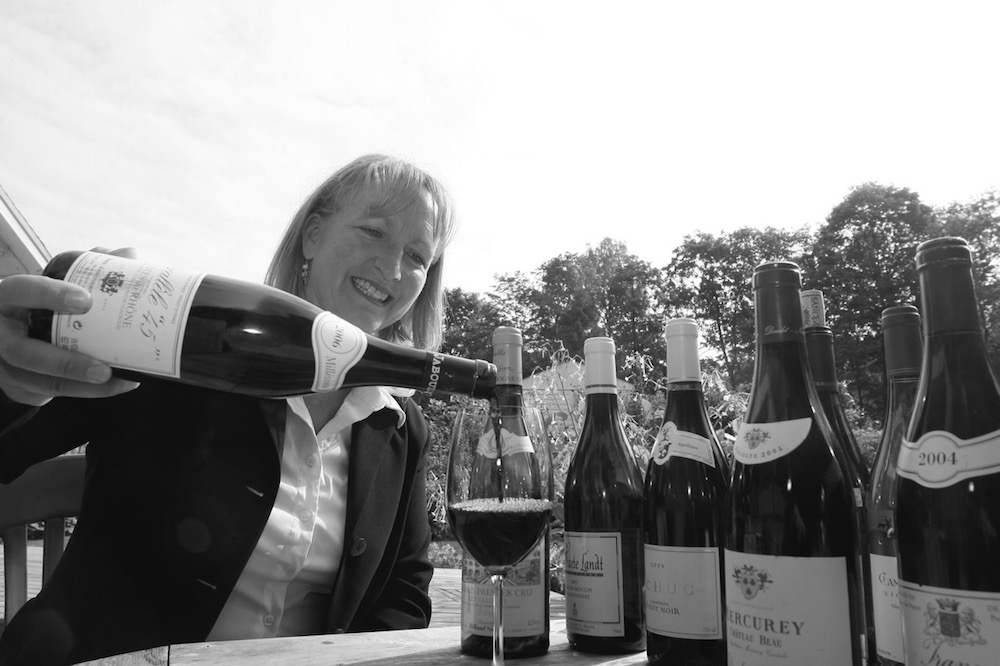
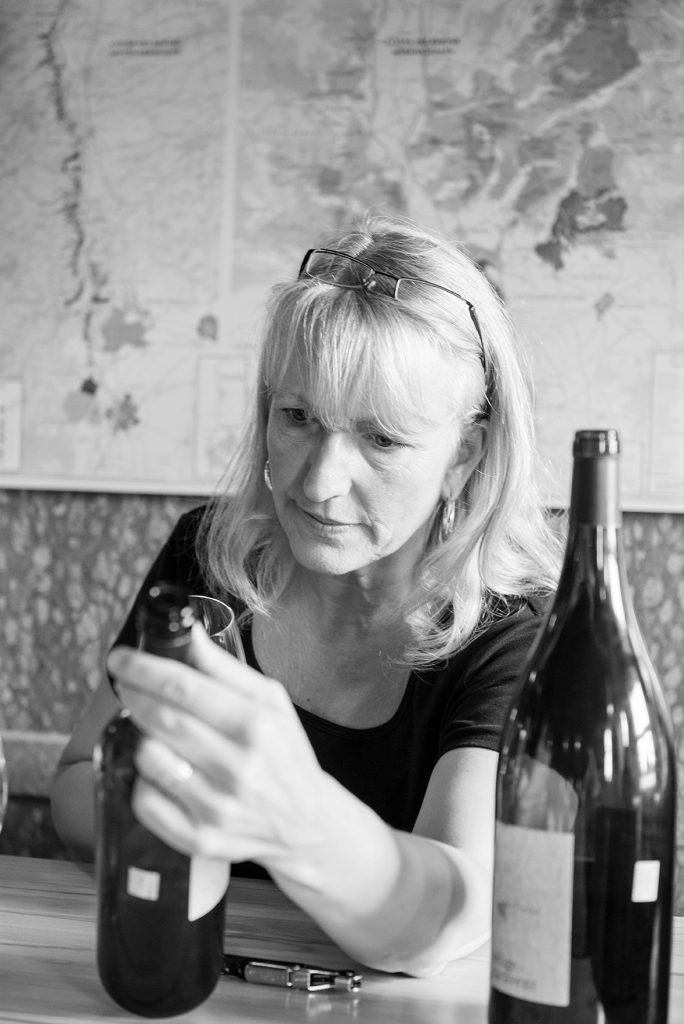
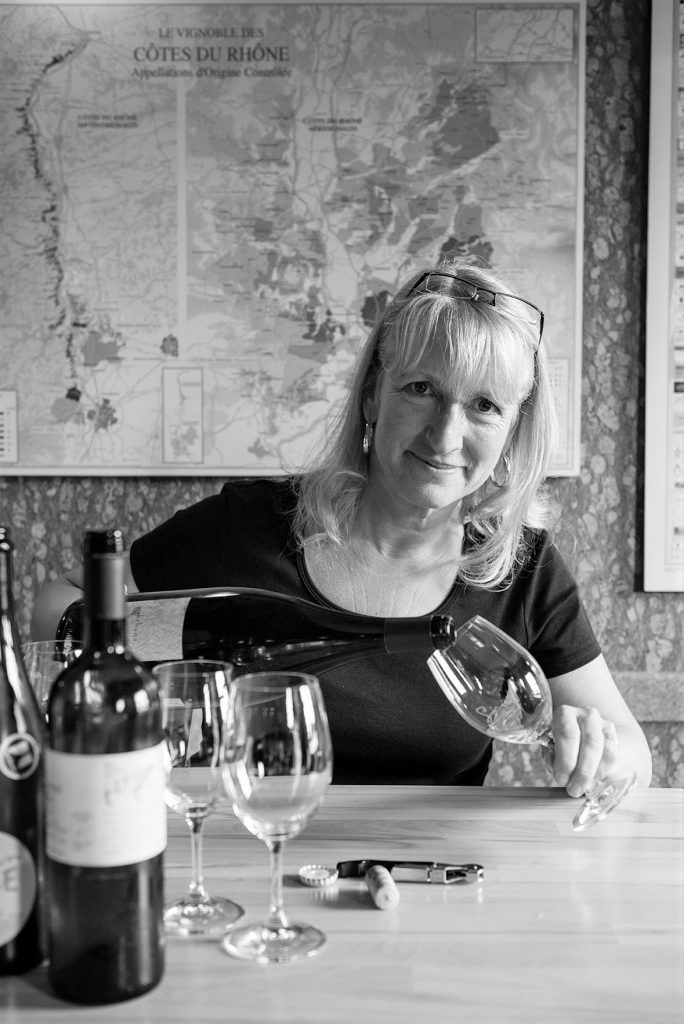


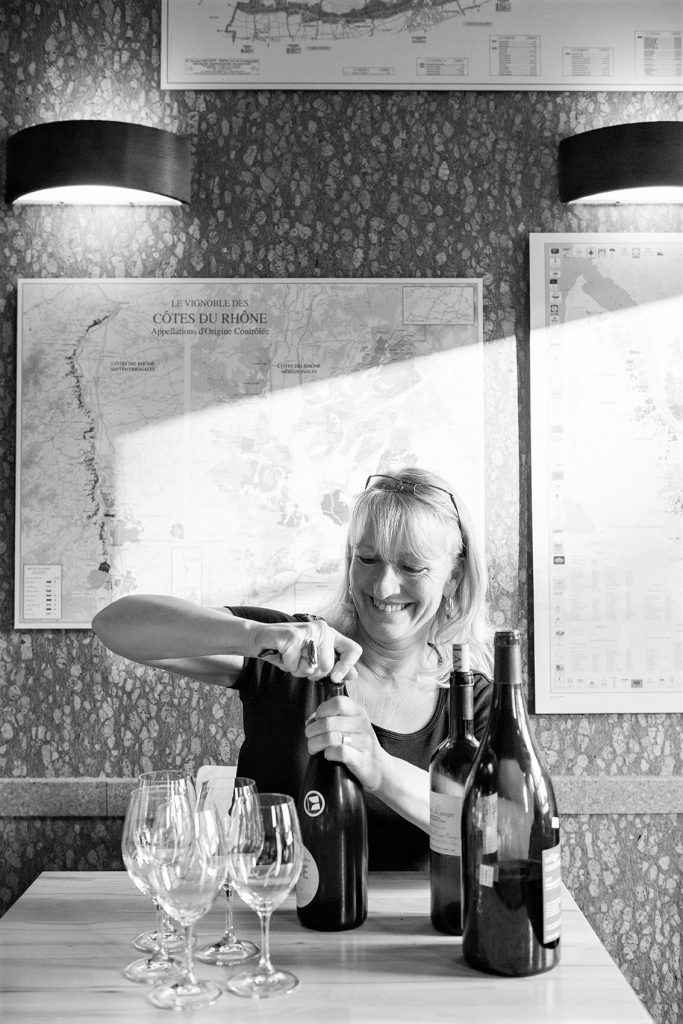
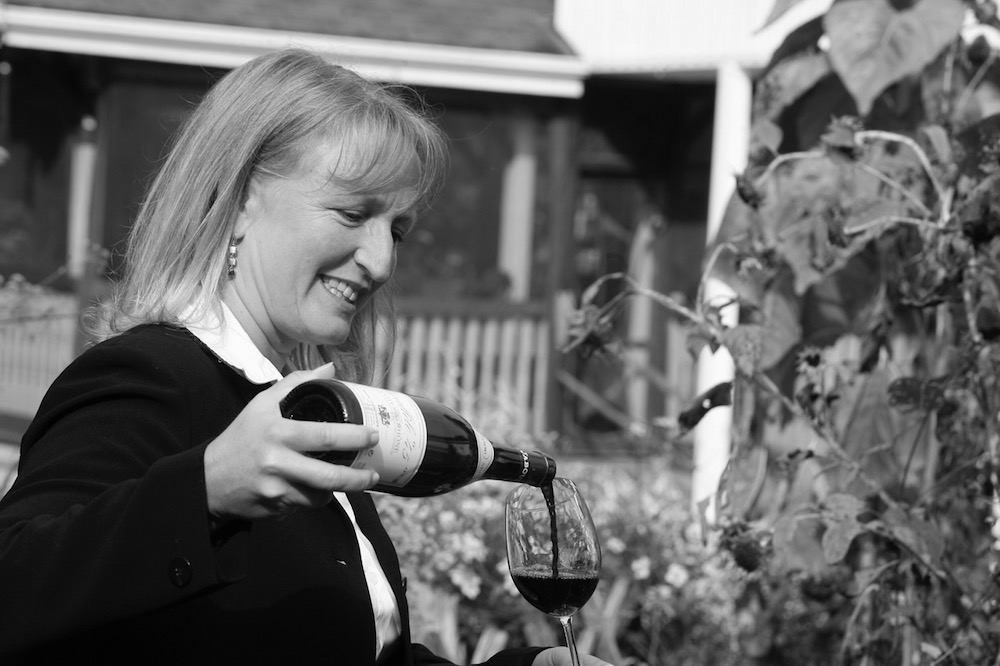
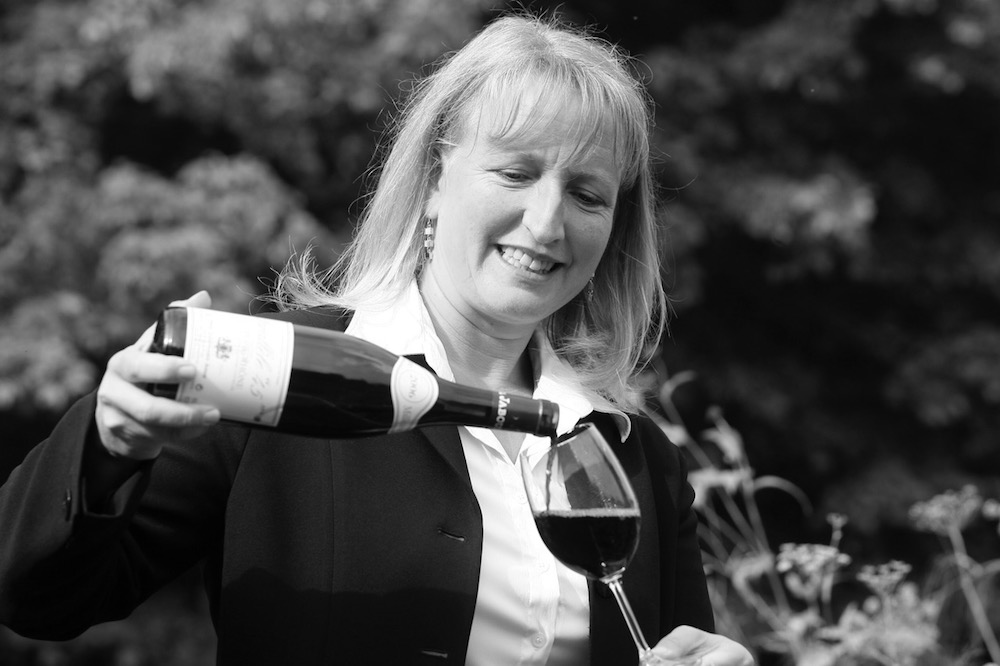
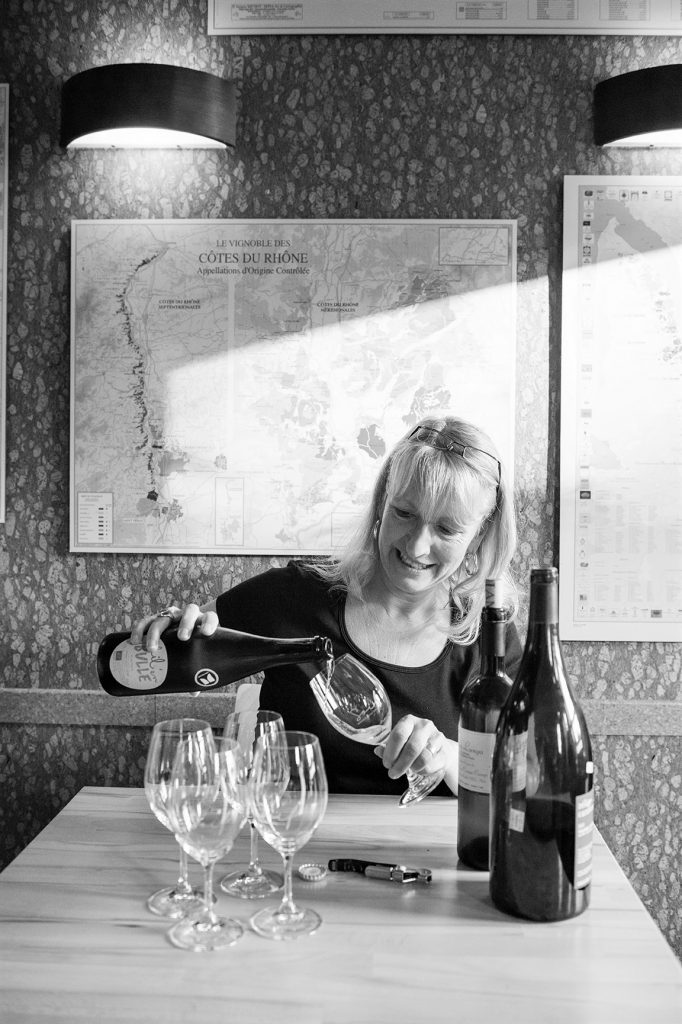

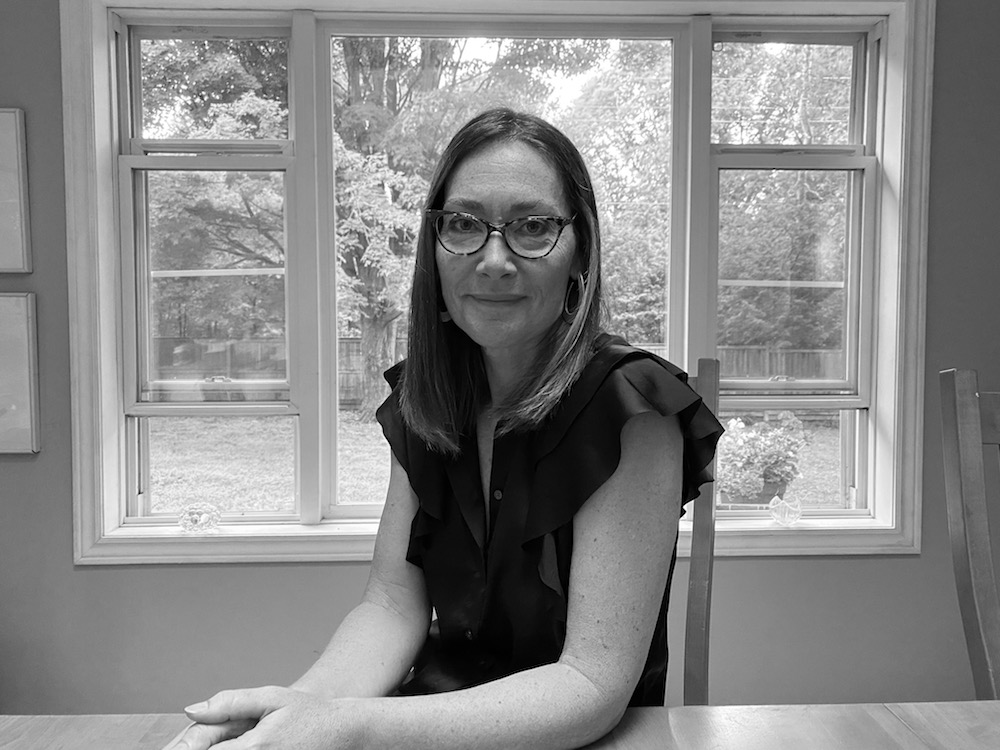
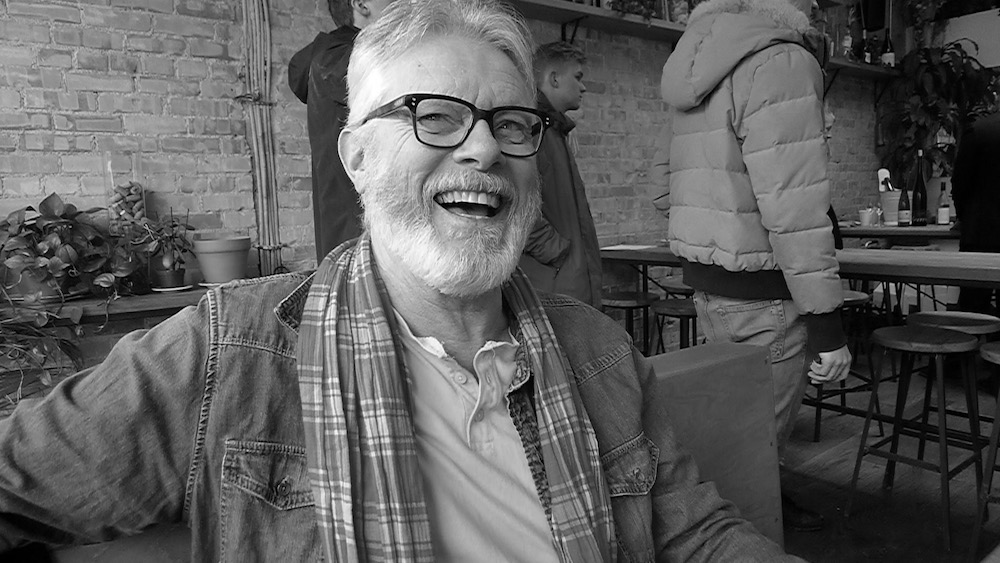
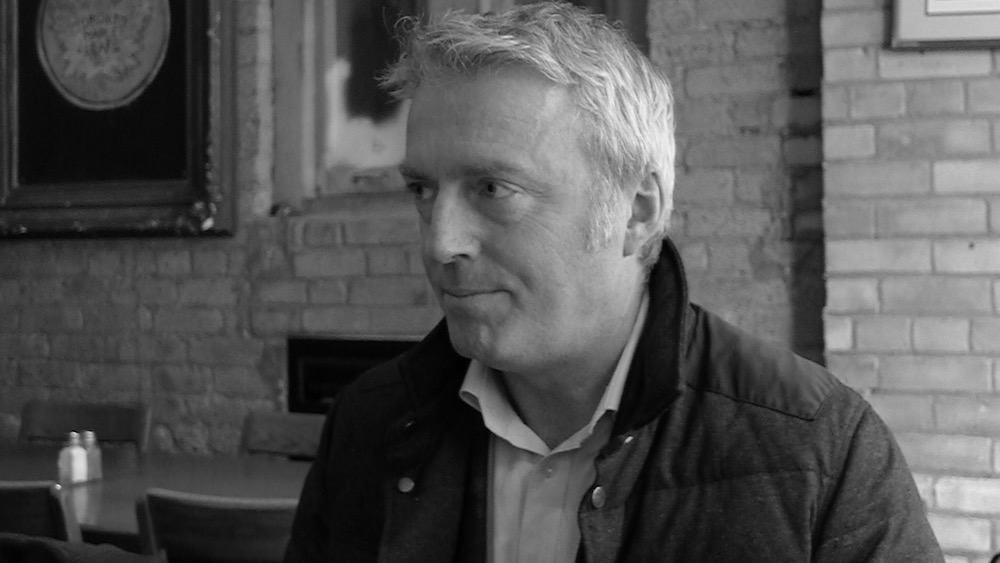
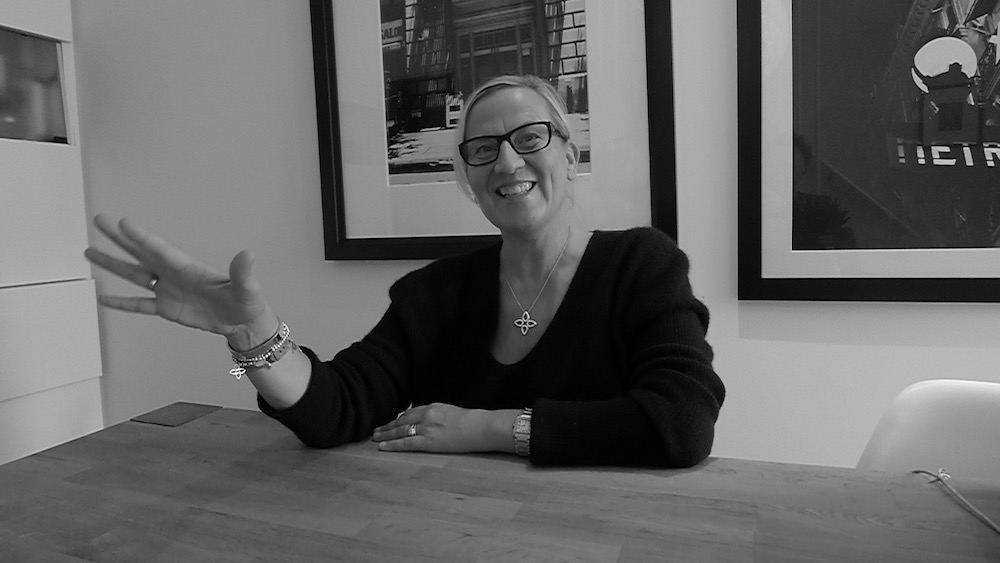

I’ve said it before and I’ll say ti again — please ask the YBS people their opinions on wine media (some allusion was made to experts, but not enough) and government instrusions…Thanks!!